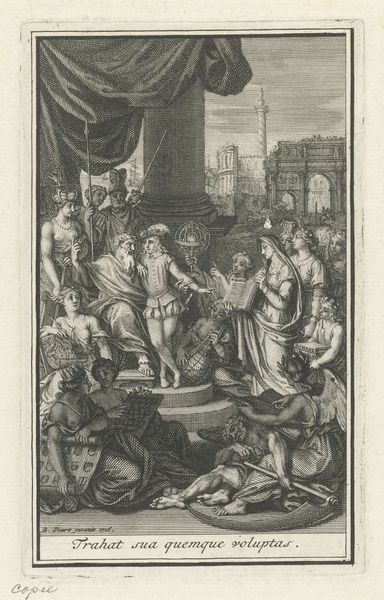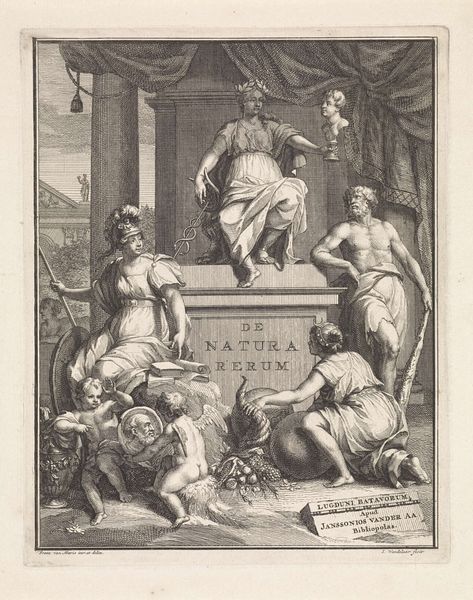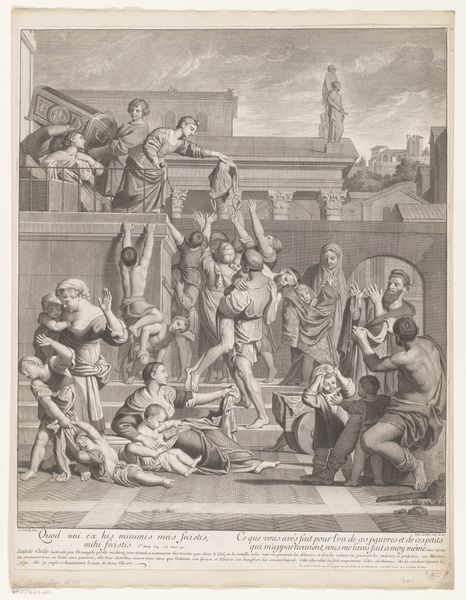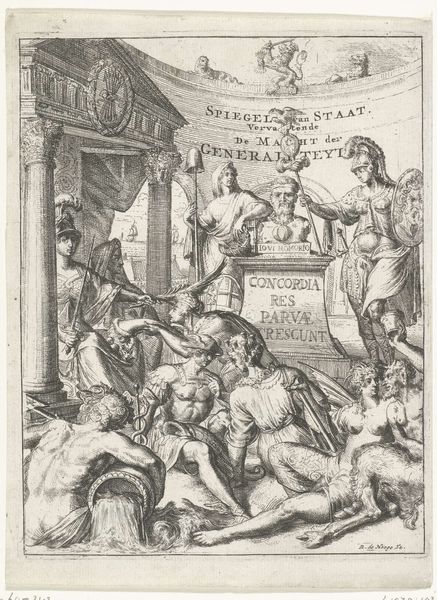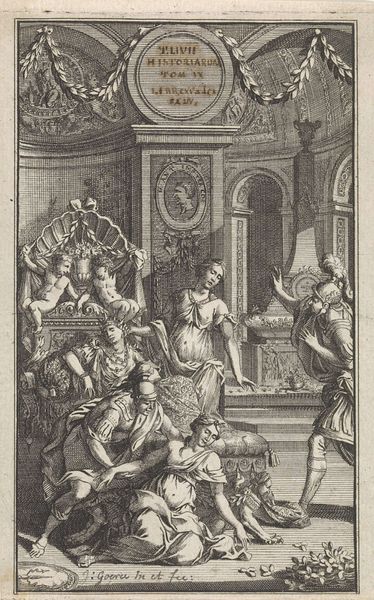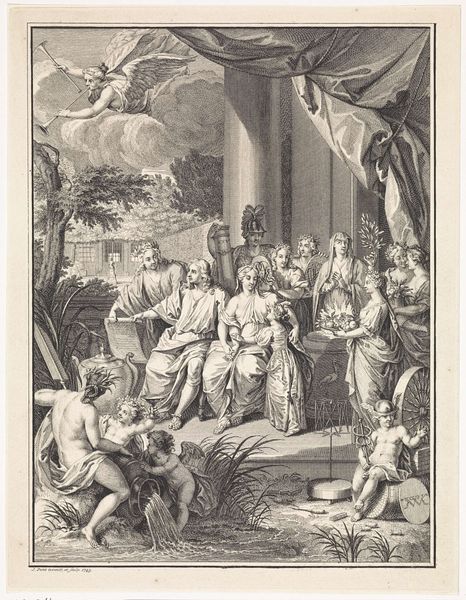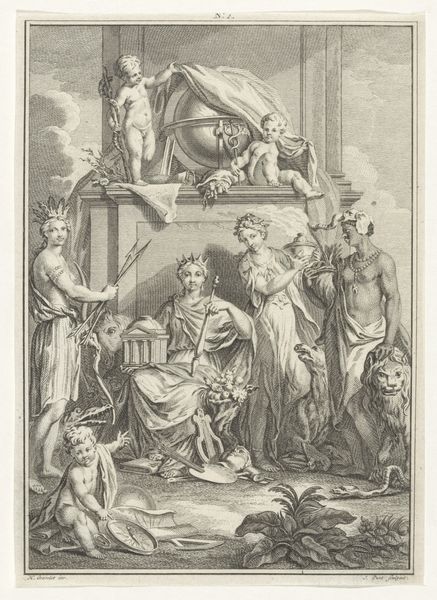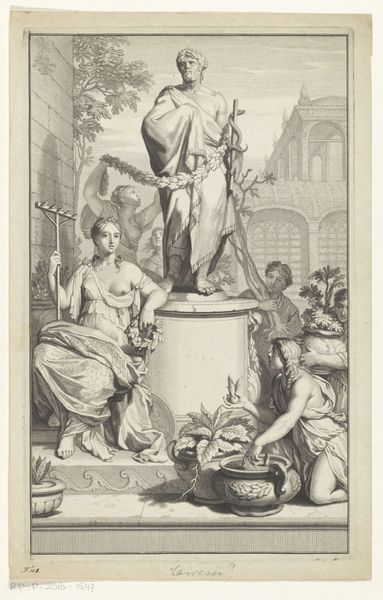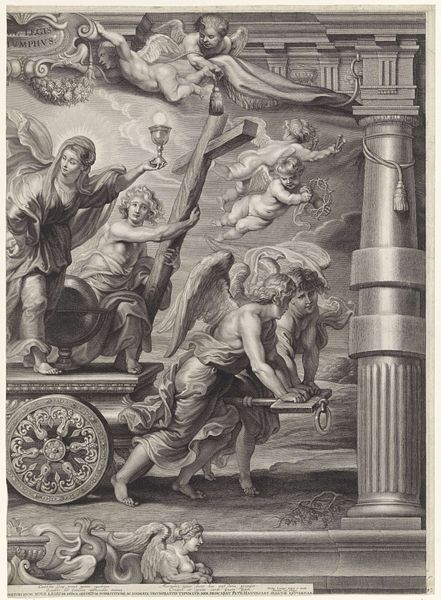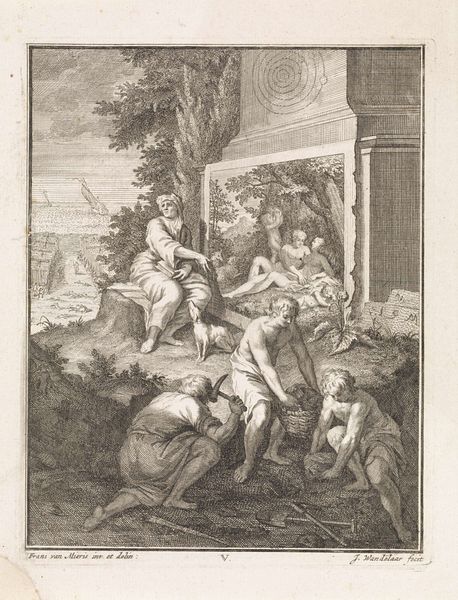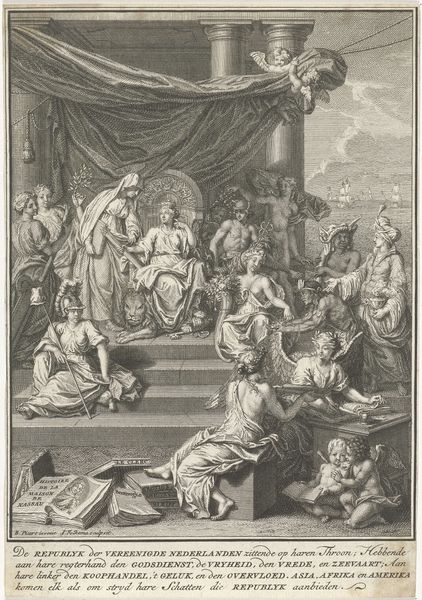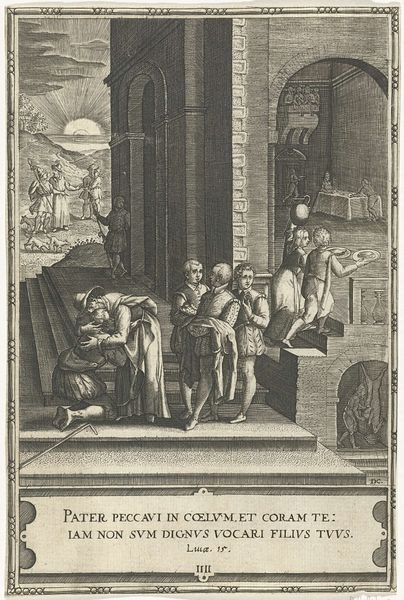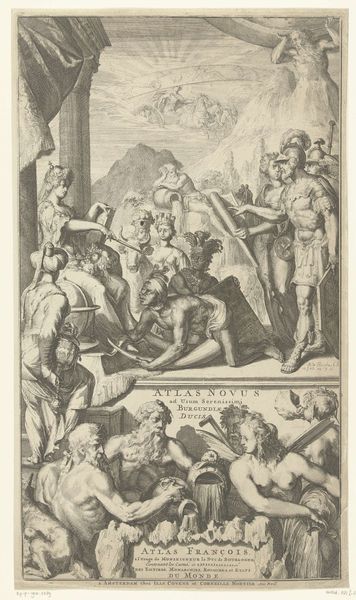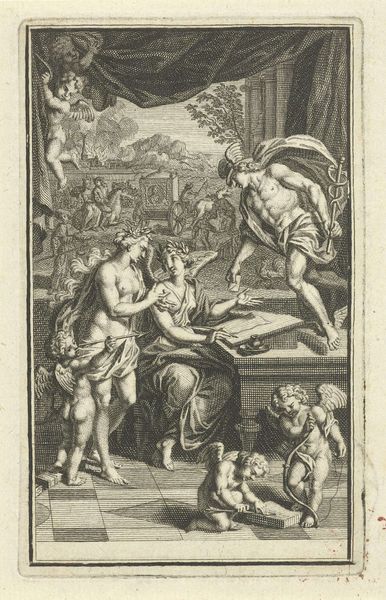
print, engraving
#
allegory
#
baroque
# print
#
perspective
#
figuration
#
cityscape
#
history-painting
#
engraving
Dimensions: height 216 mm, width 164 mm
Copyright: Rijks Museum: Open Domain
Curator: This is the title page of ‘Compleet Nederduitsch en Fransch Woordenboek’, or Complete Dutch and French Dictionary, made by Gideon Quineau in 1717. The work is an engraving, currently held at the Rijksmuseum. It strikes me immediately as allegorical, doesn't it? The central figures, the open books… Editor: Absolutely, a complex symbolic arrangement! I find the overall composition somewhat unsettling though, with that figure wielding the scythe and pointing authoritatively toward a bustling city scene in the background. There's an inherent tension here. Curator: The Baroque style often employs such dynamism to convey powerful messages. Notice the use of perspective here; how the eye is drawn from the foreground figures to the distant cityscape. The very idea of the dictionary is explored as a grand entrance into society. Editor: A carefully constructed message that favors the elite, perhaps? These languages would not be those of commoners, after all. The scythe seems an instrument that excludes and eradicates certain voices. Are those two gentlemen depicted there, Descartes and Homer perhaps, further suggesting intellectual tradition is the preserve of privileged men? Curator: The engraving is a sophisticated exercise in composition. The light falls strategically, illuminating the central figures. Also the architectural backdrop lends a classical gravitas to the pursuit of knowledge itself. Editor: I see what you mean about light, but this isn't neutral illumination; it highlights the dominant narrative. And by embedding the piece within this visual language, one might even go so far as to say it promotes the exclusionary parameters of knowledge at that moment in history, when access to language shaped political destiny and opportunity. Curator: But shouldn't we also consider it an embrace of human achievement? It surely is intended to promote dialogue between nations, encouraging people to exchange and develop their own potential! Editor: It depends, doesn't it, on whose potential we’re talking about, which voices have the right to participate in the discourse, and, perhaps most critically, the many ways in which language simultaneously elevates and oppresses! Curator: Well, whether you're drawn to its visual artistry or find it challenging, there's no doubt that this title page invites consideration of knowledge itself. Editor: Indeed. This elaborate, intricate work presents much to ponder, sparking reflections on the socio-cultural factors influencing this particular moment.
Comments
No comments
Be the first to comment and join the conversation on the ultimate creative platform.
